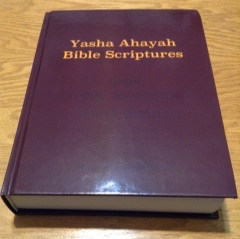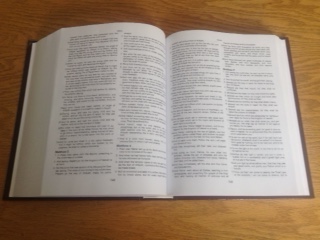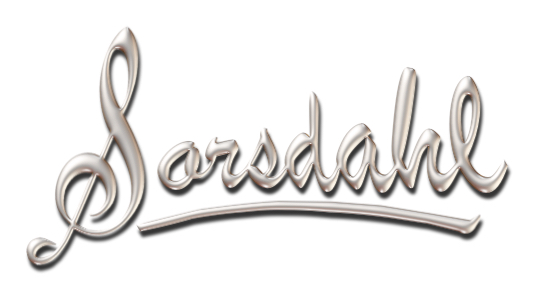
YESHU harasha' YASHA YASHAYAH MESSIAH
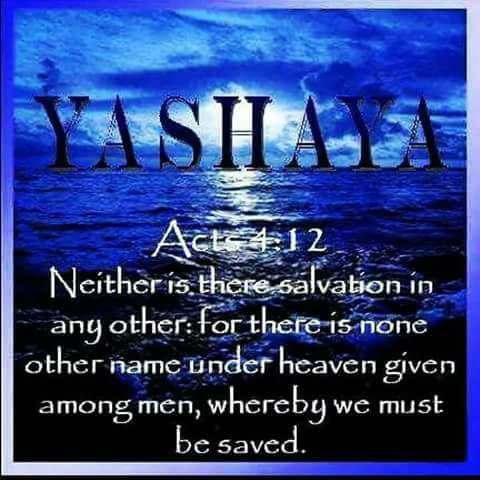
There was no letter "J" 500 years ago so His name cannot be Jesus or Jehovah!
There was no letter "E" in Hebrew, so the Messiah cannot be called Yeshu, his name is Yasha'. Yesha is found in the Dead Sea Scrolls (see below). Yeshu harasha' or Yeshu rasha' was found in The Toledot Yeshu when the jews in medieval Jews wanted to blot Him out.
Yasha in the Bible is NOT a pagan term. YASHA means Saviour in Hebrew. Page 223 of the New Strong's Complete Dictionary of Bible Words has;
Saviour;
3467 Yâsha' (13), to make safe, free
https://www.blueletterbible.org/lang/lexicon/lexicon.cfm?t=kjv&strongs=h3467
H3449 Yishshiyah
https://www.blueletterbible.org/lang/lexicon/lexicon.cfm?t=kjv&strongs=h3449
יָשַׁע Yasha` ![]()
found in Paleo Hebrew in Isaiah 62:11
http://www.bayithamashiyach.com/Isaiah.html
This Bible uses Yâsha' and YASHAYAH for our saviour.
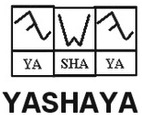
http://www.israelitesunite.com/true-names.html
The Savior said, “I am come in my Father’s name, and ye receive me not: if another shall come in his own name, him ye will receive. John 5:43.
The Father’s Name and the Son’s name are the SAME!!!
AHAYAH=Father YASHAYAH=Son
Both names have HAYAH. Strong's H1961
The Hellenist translators substituted their saviour god “Zeus” for our Saviour’s Name, because they were ordered not to teach or preach in the true Name of the Saviour. Acts 4:17, 18; 5:28, 40-42.
The reason we don’t have the Saviour’s Name in the New Testament is because He was accused of blasphemy. Matthew 26:62-66; Luke 22:69.
the penalty for blasphemy is death. Leviticus 24:16.
the blasphemer’s name would be blotted out of the tribes of Israel. Deuteronomy 29:20, 21.
The Jews did not believe that Yasha was the Messiah, so His name was taken out of the Bible. Name of Yasha found in the New Testament, under the praise Hosana (Yashana) Matthew 21:9! The Greeks didn't know what the Hebrews were saying, so they wrote Hosana instead of YASHA-NA, the saviours name was pronounced as Oh Save and was known as perfect praise because IT HAD THE SONS NAME!
"Yasha" rode into Jerusalem on the donkey. [Zechariah 9:9] And the children shouted "Yashana" Matthew 21:9 The Saviour said this was perfected praise Matthew 21:16. Hosana/Yashana is perfect praise.
Yashana – Hosana G#5614 "of Hebrew origin [3467 and 4994]; oh save!; hosanna (i.e. hoshia-na), an exclamation of adoration: --hosanna." #3467 is Yasha and 4994 is ‘na’.
His name cannot be Joshua because there was only 1 name given to the Messiah. There was already a Joshua of the Bible.
Philippians 2:9 Wherefore Ahâyâh also hath highly exalted him, and given him a name which is above every name:
Matthew 1:21 And she shall bring forth a son, and thou shalt call his name Yâsha': for he shall save his people from their sins.
Only Yasha means saviour
https://www.blueletterbible.org/lang/lexicon/lexicon.cfm?t=kjv&strongs=h3467
Page 243. , 247. and 252 The Dead Sea Scrolls Uncovered, by Robert H. Eisenman (Author), Michael Wise (Author)
CHRIST TRUE NAME IN THE DEAD SEAS SCROLLS
https://www.bibliotecapleyades.net/scrolls_deadsea/uncovered/uncovered07.htm
http://www.deadseascrolls.org.il/explore-the-archive/manuscript/4Q418-1
The Children Of Salvation (Yesha’) And The Mystery Of Existence (4Q416, 418) (Plate 22)
The Salvation (Yesha') of His Works
Fragment 9 Column 1
(1) [...the] time, lest he hear you. And while he is alive, speak to him, lest he... (2) without appropriate reproof for his sake. Is it not bound up... (3) Furthermore, his Spirit will not be swallowed (i.e. ‘consumed’), because in silence... (4) [and] quickly take his reproof to heart, and be not proud because of your transgressions... (5) He is Righteous, like you, because he is a prince among... (6) He will do. For how is He unique? In all His work, He is without... (7) Do not consider the Evil Man as a co-worker, nor anyone who hates... (8) the Salvation (YESHA’) of His works, together with His command; therefore know how to conduct yourself with Him... (9) Do not remove [the Law of God] from your heart, and don’t go very far along by yourself... (10) For what is smaller than a man without means? Also, do not rejoice when you should be mourning, lest you suffer in your life... (11) existence; therefore, take from the children of Salvation (YESHA’), and know who will inherit Glory, for it is necessary for Him, not... (12) And instead of their mourning, (yours will be) everlasting joy, and the troublemaker will be placed at your disposal, and there will not [be...] (13) To all your young girls, spea[k] your judgements like a Righteous ruler, do not... (14) and do not take your sins lightly. Then the radiance of... will be... Judgement... (15) will He take, and then God will see, and His anger will be assuaged and He will give help against [your] sins, according to... (16) will not stand up all of its days. He will justify by His judgement, and without forgiving your... (17) Poor One. O ye, if you lack food, your need and your surplus... (18) You should leave as sustenance for His flocks according to His will, and [fr]om it, take what is coming to you, but do not add there[to...] (19) And if you lack, do not... Riches from your needs, for [His] storehouse will not be lacking. [And upon] (20) His word everything is founded, so a[at] what He gives you, but do not add to... (21) your life... If you borrow Riches from men to fill your needs, do not... (22) day and night, and do not for the peace of your soul... He will cause you to return to... Do not lie (23) to him. Why should you bear (the) sin? Also, from reproach... to his neighbor. (24)... and he will close up his hand when you are in need. According to Wisdo[m...] (25) and if affliction befalls you, and... (26) He will reveal... (27) He will not make atonement with... (28) a[gain]. Furthermore...
The earliest archaeological evidence of an Arabic name for Jesus is a Jordanian inscription. Enno Littman (1950) states: "Mr. G. Lankaster Harding, Chief Curator of Antiquities Hashimite Kingdom of Jordan, kindly sent me copies of a little more than five hundred Thamudic inscriptions. [...] It is the inscription [Harding No. 476] that interests us here. [...] Below the circle there are four letters: a y, a sh, a ʿ, and again a y." He also states: "These letters are so placed that they can be read from right to left or from left to right y-sh-ʿ, probably pronounced Yashaʿ, and this name is the same as Yashuaʿ, the Hebrew form of the name of Christ."[14] An archaic Arabic root for 'Salvation' exists in Yatha, which may have later formed this name: y-sh-ʿ.[15] The lack of a Waw is still unexplained. Also, the closer correspondence with another name ישעיה [y'sha'yá, "Isaiah" in English] needs explanation or discussion before this inscription can be entertained as an Arabic "Jesus".
https://en.m.wikipedia.org/wiki/Isa_(name)
The Messiah also spoke to them in the Hebrew tongue! That means He is HEBREW and almost certainly had a Hebrew name! Acts 26:14, 15 also Matthew 27:46 Yasha spoke in his Hebrew tongue: “Ishi-i, Ishi-i, Lamah Sabachthani?” that is, “My Ishi, My Ishi, why have you forsaken Me?” .
Sabachthani is a Greek Transliterated Word (Indeclinable).
The suffix “thani” means: you do this to me. Zabach is a well-known word in Hebrew Scripture. The NASB95 translates the word זבח (zabach) 295 times as sacrifice or offering, and the word עזב (azav) 170 times as forsaken, abandoned or leave. (Logos Bible Software 4, Guides, Bible Word Study. See Strong: H2076, H2077, and H5800).
http://www.messiah-study.net/sabachthani.htm
CHRISTS TRUE NAME IN THE SEFER TOLEDOT YESHU
http://jewishchristianlit.com//Topics/JewishJesus/toledoth.html
"Yeshu" is actually an acronym for the formula (ימח שמו וזכרו(נו (Y'mach Sh'mo V'Zichro(no)) meaning "may his name and memory be obliterated".
Yasha is close to Yeshu, the saviours real name. Yasha means Saviour in Hebrew, so the fact that the European Jews wrote down Yeshu for the Saviour is telling!
Sefer Toledot Yeshu (ספר תולדות ישו, The Book of the Generations/History/Life of the Messiah), often abbreviated as Toledot Yeshu, is an early Jewish text taken to be an alternative biography of Messiah. It exists in a number of different versions, none of which are considered either canonical or normative within rabbinic literature,[1] but which appear to have been widely circulated in Europe and the Middle East in the medieval period.[2][3] A 15th-century Yemenite work of the same was titled Maaseh Yeshu, or the "Episode of Messiah," in which Messiah is described as being the son of Joseph, the son of Pandera (see: Episode of Messiah). The account portrays Messiah as an impostor.
The stories claim that Messiah (Yeshu) was an illegitimate child, and that he practiced magic and heresy, seduced women, and died a shameful death.[4] But they also show a paradoxical respect for Messiah.
https://en.wikipedia.org/wiki/Toledot_Yeshu
https://tinyurl.com/ToledotYeshu
Toledot Yeshu ("The Life Story of Jesus) Revisited edited by Peter Schafer, Michael Meerson and Yaacov Deutch Pg. 164
https://tinyurl.com/ToledotYeshu
Yeshu harasha' appears in the majority of Toledot Yeshu manuscripts that I consulted (including Strasbourg BnU 3974; JTS 2221; Cambridge 557); and Ox. Cod. Heb 2407 (Opp. Add. 4 145) call Yeshu rasha'. For rabbinic references to haman harasha'. The epithet harasha' is also used for some other characters deemed evil in rabbinic literature, for example Balaam
Yeshu harasha' or Yeshu rasha' is very very close to Yasha which means saviour in Hebrew. The fact that medieval Jews who wanted his name blotted out called him that, is a lot closer then the modern 500 year old name of Jesus.
The Yasha Ahayah Bibles uses Yasha for the Messiah rather then other Pagan terms like Jesus or Joshua etc etc.
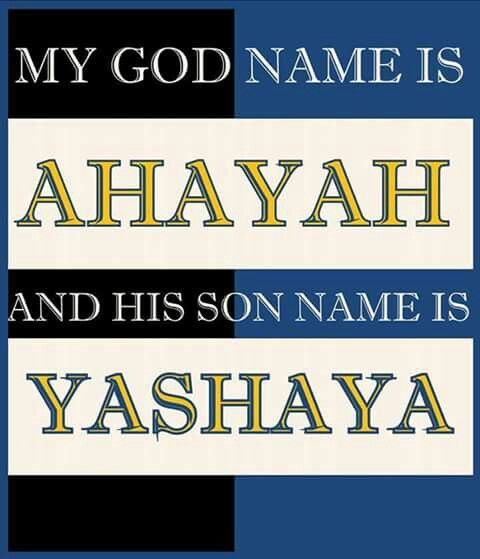
Final Word Before You Leave
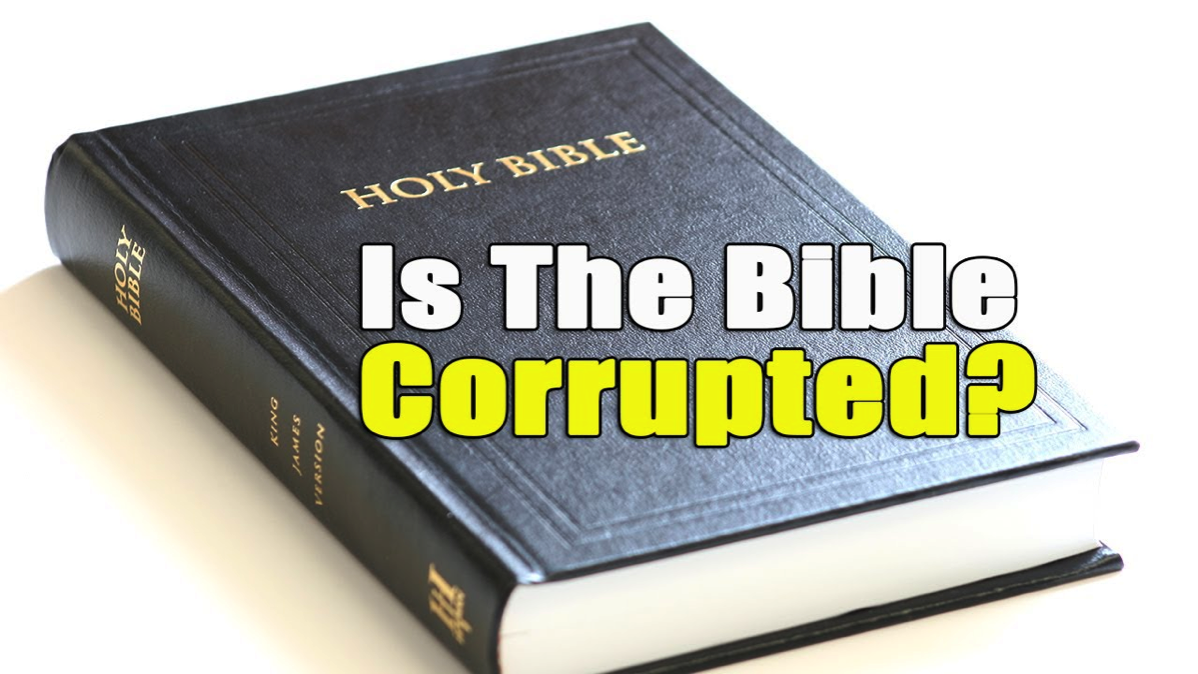
Your using a corrupted Bible and praying to the wrong God!
You would do well to have a Holy Name Bible in your possession, Purchase Yasha Ahayah Bible Scriptures without Pagan Terms
You would do well to have a Holy Name Bible in your possession, Purchase Yasha Ahayah Bible Scriptures without Pagan Terms
